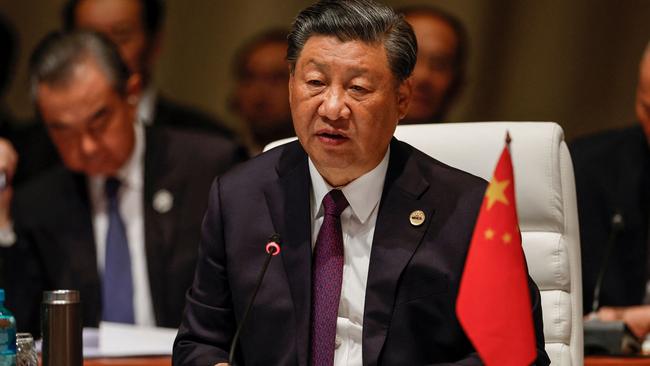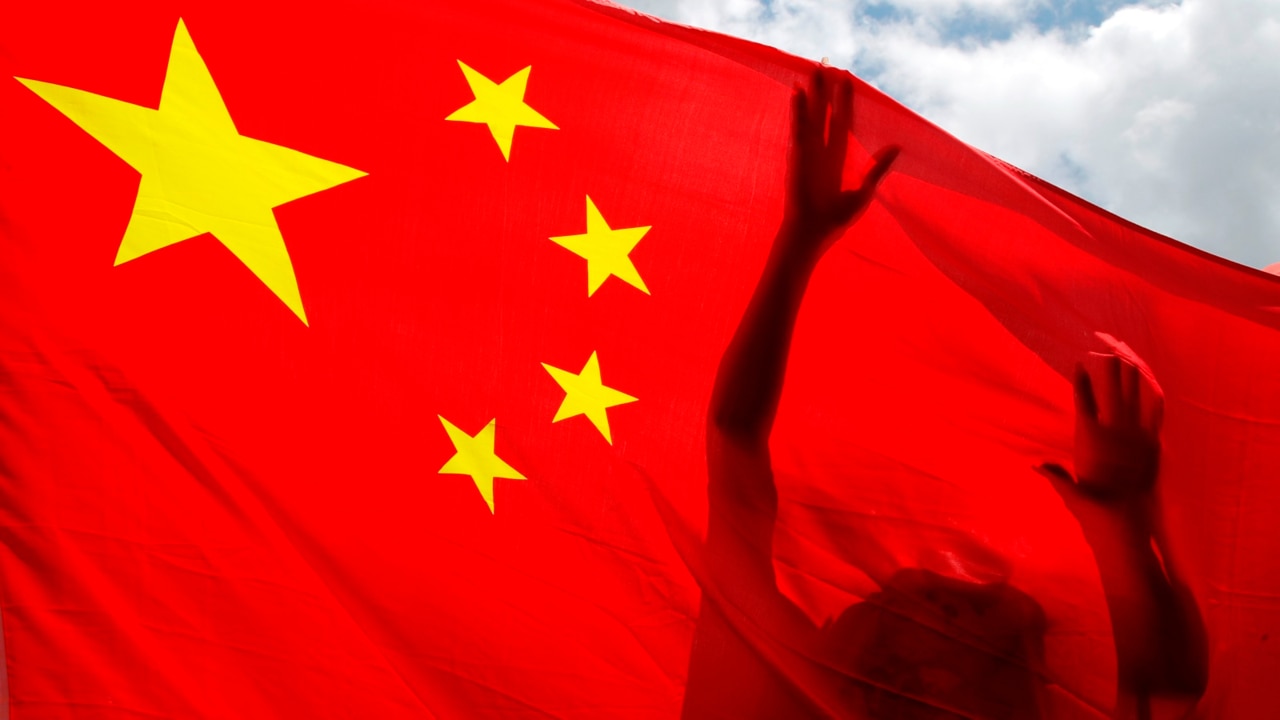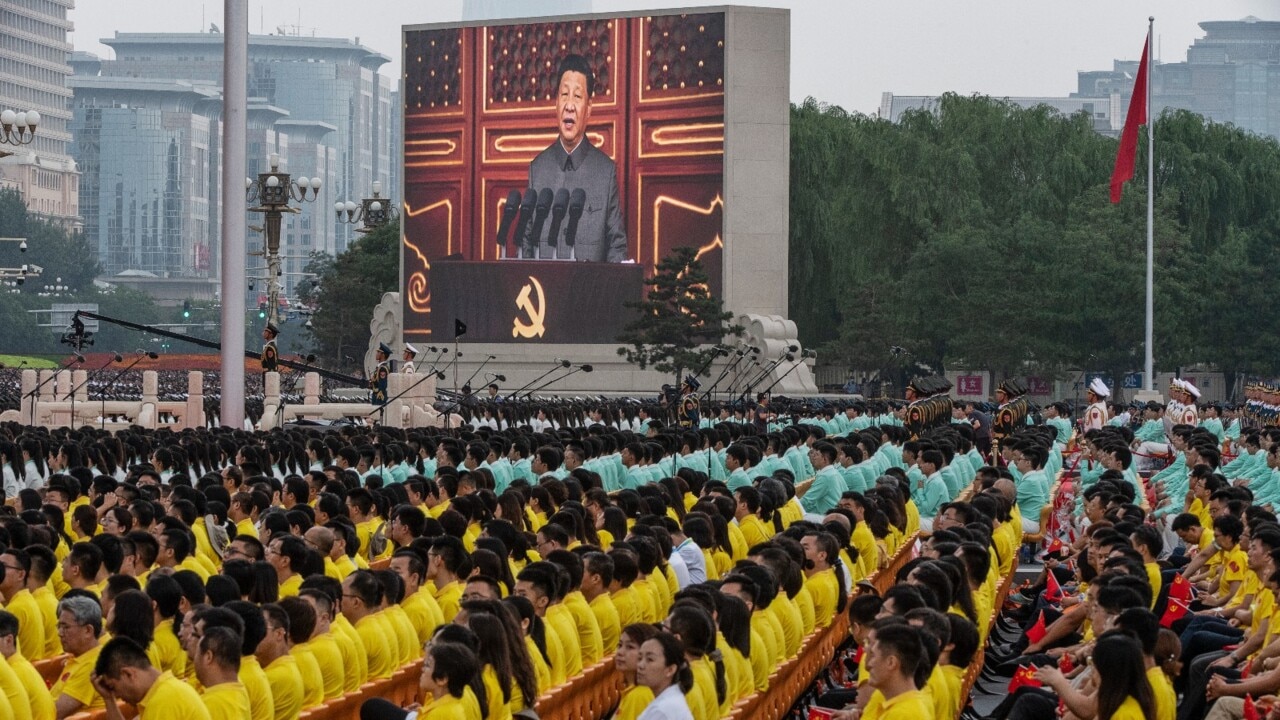China’s economic woes cast shadow on Belt and Road
Italy is planning to cancel its membership of the Belt and Road initiative amid intensifying doubts about China’s key international project.

Italy is planning to cancel its membership of the Belt and Road initiative as intensifying doubts about China’s key international project and a widening of the East-West divide cast a shadow over its tenth anniversary.
The accession of Italy to the worldwide investment program masterminded by President Xi was one of the Chinese leader’s greatest political triumphs. Italy remains the only member of the G7 club of rich western nations to have joined.
But the Italian foreign minister’s visit to Beijing this week was dominated by hostile comments from his colleagues about the initiative, also called the New Silk Road.
“The Silk Road did not bring the results we expected,” Antonio Tajani said before his visit. He is said to have told Wang Yi, his Chinese counterpart, that Italy was considering not signing up to a second five-year stint next year.
In July Guido Crosetto, the defence minister, criticised the failure of the initiative to deliver results. “The choice to join the Silk Road was an improvised and wicked act,” he said. “We exported a load of oranges to China, they tripled exports to Italy in three years.”
Xi launched the initiative in September 2013 during a visit to the central Asian republic of Kazakhstan.

It was an attempt to use China’s economic reputation after 20 years of rapid growth and success in riding out the world financial crisis to promote its development model as an alternative to US-style free market capitalism. It was primarily aimed at developing countries where there was a struggle for influence between China, the US and in some cases Russia – as with Kazakhstan, formerly part of the Soviet Union.
At the time Chinese investment was attractive to European countries that had suffered heavily from the financial crisis, including Greece and Italy, which joined in 2018 and 2019 respectively.
President Trump’s open contempt for the European Union also prompted weaker-performing countries to hedge their bets.
The Belt and Road initiative has had mixed results in its target markets in Asia and Africa. China won praise for its “can-do attitude” from African governments after an increase in infrastructure development, compared with the declining interest from former colonial powers such as Britain. Chinese officials said that by 2019 the annual value of pledged investments had reached $155 billion. The money was used to build roads, ports and special economic zones across Africa and Asia.

Li Qiang, the prime minister of China, took a test ride yesterday on Asia’s first high-speed railway from Jakarta, the capital of Indonesia, to Karawang, 25 miles (40km) away. The trip took about 11 minutes.
The initiative, which funded the railway, has raised hackles, however, because the investment comes with a demand that countries support China’s international positions – particularly recognition of Taiwan, the self-governing island – and other strategic goals.
As European countries turn away from China over security concerns and in protest at its relationship with Russia despite the invasion of Ukraine, the political aspects are becoming a barrier to further investment.
Some of the investments have failed to produce the promised returns amid China’s growing international debt burden. A project to build a railway line from Mombasa in Kenya ran out of money 75 miles (112km) from the capital, Nairobi. The Indonesia railway was blighted by delays and overspends.
More worryingly for China, one of the economic drivers of the project has backfired. To escape the financial crisis, the country went on a debt binge, encouraging companies to take out loans to boost production.
Countries taking part in the initiative were expected to spend heavily on Chinese exports as part of their own expansion. However, loans made by Chinese banks for the Belt and Road initiative merely exacerbated China’s debt problem, which has led this year to a financial crunch.
Beijing is keen not to lose such a symbolically important partner as Italy. The New Silk Road was sold as recreating the old trading routes between China and the Roman Empire two millennia ago.
State-backed commentators have accused Italy of “playing to the US tune”; the government of Giorgia Meloni, Italy’s right-wing prime minister, is far more pro-Washington than the maverick Five Star government that signed up to the agreement in 2019.
Meloni has insisted that pulling out of the deal would not harm relations, including economic links, with Beijing.
But Wang told his Italian counterpart that Rome “should adhere to the right way of getting along with each other through mutual respect, openness and co-operation”.
A fiercely worded editorial in the China Daily, the country’s English- language mouthpiece, said last month: “Italy should not let the siren call of Washington lead it astray from the Belt and Road initiative.”
The Times







To join the conversation, please log in. Don't have an account? Register
Join the conversation, you are commenting as Logout